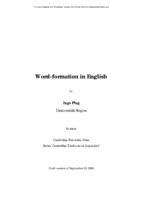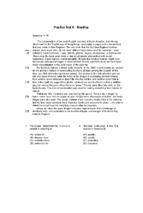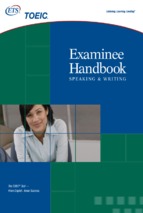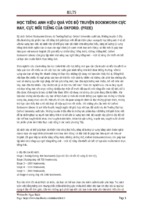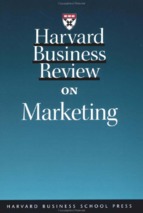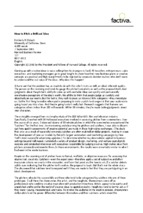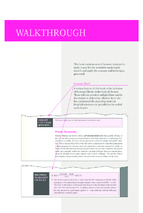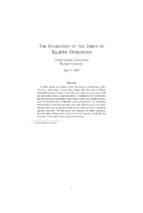www.ebook3000.com
www.ebook3000.com
INTERNATIONAL ECONOMIC LAW
AFTER THE GLOBAL CRISIS
This collection explores the theme of fragmentation within international
economic law as the world emerged from the 2008 global financial crisis,
the subsequent recession and the European sovereign debt crisis which
began in early 2010. The post-crisis ‘moment’ itself forms a contemporary
backdrop to the book’s focus on fragmentation as it traces the evolution of
the international economic system from the original Bretton Woods
design in the aftermath of the Second World War to the present time.
The volume covers issues concerning monetary cooperation, trade and
finance, trade and its linkages, international investment law, intellectual
property protection and climate change. By connecting a broad, crossdisciplinary survey of international economic law with contemporary
debate over international norm and authority fragmentation, the book
demonstrates that ours has been essentially a fragmented and multi-focal
system of international economic regulation.
c. l. lim is an international lawyer and former trade negotiator. He is
currently Professor of Law at the University of Hong Kong and chairs the
East Asian International Economic Law and Policy Programme. He is also
Visiting Professor at King’s College London and a barrister.
bryan mercurio is Professor and Vice Chancellor’s Outstanding Fellow
of the Faculty of Law at the Chinese University of Hong Kong. He has also
worked in government and private practice and has advised law firms,
international organisations, NGOs and several governments on a wide
range of international trade and investment matters.
www.ebook3000.com
www.ebook3000.com
INTERNATIONAL ECONOMIC
LAW AFTER THE G LOBAL
CRISIS
A Tale of Fragmented Disciplines
C. L. LIM
University of Hong Kong
BRYAN MERCURIO
Chinese University of Hong Kong
www.ebook3000.com
University Printing House, Cambridge CB2 8BS, United Kingdom
Cambridge University Press is part of the University of Cambridge.
It furthers the University’s mission by disseminating knowledge in the pursuit of
education, learning and research at the highest international levels of excellence.
www.cambridge.org
Information on this title: www.cambridge.org/9781107075696
© Cambridge University Press 2015
This publication is in copyright. Subject to statutory exception
and to the provisions of relevant collective licensing agreements,
no reproduction of any part may take place without the written
permission of Cambridge University Press.
First published 2015
A catalogue record for this publication is available from the British Library
Library of Congress Cataloguing in Publication data
International economic law after the global crisis : a tale of fragmented
disciplines / edited by C. L. Lim, University of Hong Kong;
Bryan Mercurio, Chinese University of Hong Kong
pages cm
“The collection began life partly as a collection of papers delivered
during the second conference of the Asian International
Economic Law Network (AIELN) . . . held at the
University of Hong Kong during the summer of 2011”
ISBN 978-1-107-07569-6 (Hardback)
1. International finance–Law and legislation. 2. Foreign trade regulation.
3. Investments, Foreign–Law and legislation. 4. International economic relations.
I. Lim, C. L., 1947– editor. II. Mercurio, Bryan, editor.
K4430.I58 2015
3430 .03–dc23
2014030592
ISBN 978-1-107-07569-6 Hardback
Cambridge University Press has no responsibility for the persistence or accuracy of
URLs for external or third-party internet websites referred to in this publication,
and does not guarantee that any content on such websites is, or will remain,
accurate or appropriate.
www.ebook3000.com
CONTENTS
List of tables
viii
List of contributors
Preface
xiii
1
ix
The fragmented disciplines of international economic law
after the global financial and economic crisis: an
introduction
1
c. l. lim and bryan mercurio
part i
2
Monetary cooperation, trade and finance
31
Does financial law suffer from a systemic failure? A study
of the fragmentation of legal sources
33
rolf h. weber
3
Credit rating agencies: the development of global
standards
46
elisabet ta cervone
4
The broken glass of European integration: origins and
remedies of the Eurozone crisis and implications for global
markets
72
emilios avgouleas and doug las w. arner
5
From regional fragmentation to coherence: a way forward
for East Asia
107
ross p. buckley
6
‘The law works itself pure’: the fragmented disciplines of
global trade and monetary cooperation, and the Chinese
currency problem
134
c. l. lim
v
www.ebook3000.com
vi
contents
part ii
7
Trade and some of its linkages
161
Roadblocks and pathways towards inter-state cooperation in
increasing interdependence
163
an herto gen
8
The industrial policy of China and WTO law: ‘the shrinking
policy space’ argument as sterile fragmentation
188
junji nakagawa
9
The first condition of progress? Freedom of speech and the
limits of international trade law
209
tomer broude and holger hestermeyer
10
Emergency safeguard measures for trade in services: a case
study of intradisciplinary fragmentation
237
shin-y i peng
11
The schizophrenia of countermeasures in international
economic law: the case of the ASEAN Comprehensive
Investment Agreement
263
martins paparinskis
part iii
12
Investment law and intellectual property
protection
279
Multilateral convergence of investment company
regulation
281
anita k. krug
13
Greek debt restructuring, Abaclat v. Argentina and investment
treaty commitments: the impact of international investment
agreements on the Greek default
306
julien chaisse
14
Chinese bilateral investment treaties: a case of ‘internal
fragmentation’
329
juan ignacio stampalija
15
A post-global economic crisis issue: development, agriculture,
‘land grabs,’ and foreign direct investment
356
antoine martin
www.ebook3000.com
vii
contents
16
Intellectual property rights in international investment
agreements: striving for coherence in national and
international law
380
tania voon, andrew mitchell, and james munro
17
The Anti-Counterfeiting Trade Agreement: less
harmonization, further fragmentation
406
bryan mercurio
part iv
18
Aspects of climate change regulation
427
The WTO legality of the application of the EU’s emissions
trading system to aviation
429
lorand bartels
19
Certain legal aspects of the multilateral trade system and
the promotion of renewable energy
482
rafael leal-arcas and andrew filis
Concluding observations
519
Conclusion: beyond fragmentation?
521
part v
20
c. l. lim and bryan mercurio
Index
537
www.ebook3000.com
TABLES
10.1 Type I: A mandate to negotiate ESM with a specific timeframe
243
10.2 Type II: Pending until the conclusion of the GATS Article
X negotiations
244
10.3 Type III: Expressly forbidding the imposition of safeguards measures
10.4 The commitments of the Taiwan side on liberalization of financial
services sector
255
10.5 The commitments of the China side on liberalization of financial
services sector
256
13.1 Matrix of BITs’ legal drafting variations
322
viii
245
CONTRIBUTORS
douglas w. arner is a professor at the Faculty of Law of the
University of Hong Kong.
emilios avgouleas is the inaugural holder of the International
Banking Law and Finance Chair at the University of Edinburgh, the Head
of the Commercial Law (subject area) Group in the Law School, and the
Director of the Edinburgh LLM in International Banking Law and Finance.
lorand bartels is a senior lecturer in law in the Faculty of Law and a
fellow of Trinity Hall at the University of Cambridge.
tomer broude is the Sylvan M. Cohen Chair in Law and Vice Dean,
Hebrew University of Jerusalem Faculty of Law and Department of
International Relations.
ross p. buckley is the CIFR King & Wood Mallesons Chair of
International Finance Law, and a Scientia professor, at UNSW Australia.
elisabetta cervone is Consulting Counsel at The World Bank,
Finance and Markets Global Practice.
julien chaisse is an associate professor at the Chinese University of
Hong Kong, Faculty of Law.
andrew filis was a research fellow at Queen Mary University of
London (Centre for Commercial Law Studies) (2012–14). Previously, as
a policy official at the UK’s Ministry of Justice (2004–11), he had been
involved in a variety of civil and family justice policy related work.
an hertogen is a lecturer at the University of Auckland, Faculty of
Law.
ix
x
list of contributors
holger hestermeyer is a référendaire at the Court of Justice of the
European Union.
anita k. krug is an assistant professor at the University of Washington, School of Law.
rafael leal-arcas is a reader in law at Queen Mary, University of
London.
c. l. lim is an international lawyer and former trade negotiator. He is
currently Professor of Law at the University of Hong Kong and chairs the
East Asian International Economic Law and Policy Programme. He is
also Visiting Professor at King’s College London and a barrister.
antoine martin is a recent Ph.D. graduate consultant specializing in
international relations and policy affairs.
bryan mercurio is Professor and Vice Chancellor’s Outstanding
Fellow of the Faculty of Law at the Chinese University of Hong Kong.
andrew mitchell is Professor of Law at Melbourne Law School and
Future Fellow of the Australian Research Council.
james munro is a doctoral (PhD) candidate at the University of
Melbourne.
junji nakagawa is a professor of international economic law at the
Institute of Social Science, University of Tokyo.
martins paparinskis is a lecturer at University College London,
Faculty of Laws.
shin-yi peng is a professor of law at National Tsing Hua University
currently serving as Commissioner of the National Communications
Commission, the Executive Yuan, Taiwan.
juan ignacio stampalija is an assistant professor of law at the
Universidad Austral School of Law in Buenos Aires, Argentina.
list of contributors
xi
tania voon is Professor of Law at Melbourne Law School and former
legal officer in the Appellate Body Secretariat of the World Trade
Organization.
rolf h. weber is Professor of civil, commercial and European law at
the University of Zurich, Switzerland, and a visiting professor at the
University of Hong Kong.
PREFACE
In this collection, we set out to provide a reliable guide and analyses of
key, contemporary issues in international economic law. The period
following the global financial crisis, and thereafter the global economic
crisis marked by the great recession and the European debt crisis, seemed
an especially good time to revisit the broader manner in which the postSecond World War Bretton Woods system has evolved, and to ask
whether current institutions and arrangements are adequate to the task
of handling the kinds of issues which we have included in this survey.
Our aim has therefore been to provide a snapshot of the field during the
years following the global financial crisis of 2008.
Although we believe this single volume will be a useful complement in
the university classroom, our aim is to appeal not only to academics,
scholars and university students but also to lawyers, diplomats and
policy-makers.
The book began life partly as a collection of papers delivered during
the second conference of the Asian International Economic Law Network
(AIELN). AIELN, which is spearheaded by Junji Nakagawa of the University of Tokyo, is a regional sub-group of the Society of International
Economic Law (SIEL), and is therefore open to those who are members
of SIEL. The conference – dubbed ‘AIELN II’ – was hosted by Doug
Arner and C. L. Lim of the University of Hong Kong, and Bryan
Mercurio of the Chinese University of Hong Kong and held at the
University of Hong Kong during the summer of 2011 following a worldwide call for papers. Colleagues came from afar – London, Oxford,
Washington, DC and Zurich, among other places, in addition to AIELN’s
lively membership of Asian, Australian and New Zealand scholars. The
2011 conference focused on the emerging issues that the international
economic system confronts today, ranging from the adequacy of financial
regulation systems to the regulation of credit rating agencies, crossborder cooperation in securities regulation, investment in agricultural
land abroad and the expropriation of intellectual property rights.
xiii
xiv
preface
This collection is not, however, a mere reproduction of the proceedings of that conference. Following a post-conference assessment, we
selected a core of papers while identifying what we thought of as gaps
and other new issues which were quickly emerging, but which had not
been discussed during those proceedings: for example, the Chinese
currency policies which continued to be an issue throughout 2011, and
the European Emissions Trading Scheme, which was extended in January
2012 to airlines worldwide, having an impact on air traffic (or transport)
rights within the EU. The European Debt Crisis unfolded with the focus
on Greece and the capabilities of the EU in taking collective action. In
light of these developments, we sent out further invitations to other
international experts in an effort to provide as richly textured a snapshot
of current issues scattered across the whole landscape of international
economic regulation as possible.
When we turned our focus to how common issues were conceived,
conceptualized and regulated we found a variety of ways by which this
was done by what remains, essentially, a fragmented and multi-focal
system of international economic regulation. At the same time, the world
trading system continues to fragment and regionalize, in turn causing
ever newer forms of regulatory systemic friction particularly at a time
when regional trade agreements continue to venture far beyond regulatory concerns in Geneva. And so this volume is intended as a survey of a
broad range of legal and regulatory instruments, indeed a range of legal
regimes, by organizing our inquiry around some of the most salient and
pressing economic, legal and regulatory issues of the day, issues which
acknowledge the existence of a globalized economy against the backdrop
of imperfect global economic design.
So this is not a study of the various crises as such, but does involve
some questions of what they might mean for the international economic
order. By and large, we have focused upon two important aspects of what
theses crises do not mean – they do not or do not yet mean any great
structural change in the way the global economy continues to be
designed and regulated, and they do not mean that other real challenges
will not continue to emerge from all sides, often unrelated to the crises
but in a way which seems very much related to economic globalization.
By way of a caveat, comprehensiveness is impossible. Choices had to
be and were made. In general, however, we have tended to venture into
areas which are important but have to date been under-explored in the
literature, particularly in light of our principal focus on the still fragmented – and fragmenting – nature of global economic regulation.
preface
xv
Towards the end of the volume, we felt we knew more about what this
means, and we have tried to spell out some of that understanding in our
conclusion.
Our greatest debt is to our contributors who were sheer joy to work
with, and to Finola O’Sullivan and Kim Hughes at Cambridge University
Press who have been such magnificent and rigorous supporters of the
project. We thank the University of Hong Kong, not least for providing
generous financial support through its Strategic Research Themes
funding programme and a venue for the AIELN II Conference, AIELN’s
Steering Committee of committed scholars, the Chinese University of
Hong Kong, and our fellow co-organizer at HKU, Professor Douglas
Arner to whom we attribute much of the success of that conference.
Similarly, we are indebted to Ms Flora Leung at HKU for her consummate skills as conference administrator. Mr Kalana Senaratne, currently a
doctoral student at the University of Hong Kong, and Ms Jackie Cheng,
a JD student at the Chinese University of Hong Kong, provided invaluable editing assistance. Finally, C. L. Lim would like to record his
appreciation to the HKU–KCL Fellowship and HKU Sabbatical Leave
Schemes for funding support, to HKU law school for six months’ leave,
and to King’s College London and the World Trade Organization’s
Visiting Scholar-in-Residence Programme for offering such conducive
working environments during the preparation of this volume.
C. L. Lim and Bryan Mercurio
University of Hong Kong and the Chinese University of Hong Kong
Hong Kong SAR
1
The fragmented disciplines of international
economic law after the global financial and
economic crisis: an introduction
c . l. lim an d brya n m e r cur i o
I. Introduction
This book explores the theme of fragmentation within the discipline of
international economic law. More specifically, it focuses on the fragmented nature of international economic law at a period of time of
particular interest; that is, as the world emerged more fully from the
2008 global financial crisis, the subsequent great recession and the
European sovereign debt crisis which began in early 2010.
The book acknowledges the contemporary theoretical debate today in
the field of international economic law which is concerned with how
different norms (e.g. deriving separately from trade law and environmental law, or trade law and investment rules or the rules of monetary
cooperation) relate to each other within the larger discipline of international economic regulation. Perhaps deriving from earlier concern
among public international lawyers about the multiplication of international tribunals, this practical problem which the theoretical debate
seeks to address is often characterized in terms of ‘norm fragmentation’,
however elastic that characterization has proved to be. There is a corresponding concern in this debate with how different norms are addressed
within different institutional arrangements or sites of authority – the socalled problem of ‘authority fragmentation’.1 Viewed from the
1
See e.g. ‘Conclusions of the Work of the Study Group on the Fragmentation of International Law: Difficulties Arising from the Diversification and Expansion of International
Law 2006’, adopted by the ILC at Its Fifty-eighth session, A/61/10 (2006), para. 51;
Yearbook of the International Law Commission (2006), vol. II, pt 2; T. Broude, ‘Fragmentation(s) of International Law: On Normative Integration as Authority Allocation’, in
T. Broude and Y. Shany (eds.), The Shifting Allocation of Authority in International Law
(Oxford: Hart, 2008), 99.
1
2
c. l. lim and bryan mercurio
perspective of trade lawyers, there is also an overlapping concern with
how individual disciplines such as trade law should take on board
environmental and other rules, and often this has been referred to as
the ‘trade and . . .’ debate or, simply, the trade ‘linkages problem’.2
Finally, there are some very interesting proposals today about how the
difficulties caused by diffuse institutions within international economic
law may be handled or addressed.3
While such ‘fragmentation’ is the focus of the present volume, its
theme or the tale we wish to tell in this book is more reserved, and more
discrete than the theoretical debate(s) described above would suggest.
The key aim of the present volume is to study actual fragmentation at this
particular moment without having too many preconceptions about what
we are likely to find. We have chosen this path not only because it is
useful to take stock of the underlying factual realities of the theoretical
debate but also because we do not believe a mature intellectual consensus
has yet emerged from such theoretical debate. In short, this collection
seeks to present a wide-ranging and complex picture of the fragmentation of the discipline (and its sub-disciplines) during an important period
of economic uncertainty.
2
3
See e.g. T. Broude, ‘Principles of Normative Integration and the Allocation of International Authority: The WTO, the Vienna Convention on the Law of Treaties, and the
Rio Declaration’, Loyola Univ. Chicago Int’l L. Rev. 12(5) (2009), available at http://ssrn.
com/abstract=1249432
Examples of suggestions in this regard include the proposal to seek greater convergence in
the substantive norms to be applied in different fora or within different international
economic institutions. These may occur either within the same field or sub-discipline, or
across different fields or the different sub-disciplines of international economic law. For an
example of the former, see Broude, ‘Fragmentation(s)’, 105; C. L. Lim and H. Gao,
‘Competing WTO and RTA Jurisdictional Claims’, in T. Broude, A. Porges and M. Bush
(eds.), The Politics of International Economic Law (Cambridge University Press, 2010), 282.
For an example of the latter, see the debate on the application (or misapplication, that being
part of the debate) of trade law conceptions of non-discrimination by investment treaty
tribunals – i.e. in search of a ‘cohesive international economic law’: R. P. Alford, ‘The
Convergence of International Trade and Investment Arbitration’, Santa Clara JIL 12(35)
(2013), 44; R. Howse and E. Chalamish, ‘The Use and Abuse of WTO Law in Investor-State
Arbitration: A Reply to Jürgen Kurtz’, 20 (2009) EJIL, 1087, 1094; J. Kurtz, ‘The Use and
Abuse of WTO Law in Investor-State Arbitration: Competition and Its Discontents:
A Rejoinder to Robert Howse and Efraim Chalamish’, 20 (2009), EJIL, 1095; and Jürgen
Kurtz’s seminal article ‘The Use and Abuse of WTO Law in Investor-State Arbitration:
Competition and its Discontents’, 20 (2009), EJIL 749. The political science literature on
complex regimes is relevant to this latter debate. See e.g. the discussion of complex regimes,
and of overlapping and nested regimes, in Karen J. Alter and Sophie Meunier, ‘The Politics
of International Regime Complexity’ 7 (2009) Perspectives on Politics 13, 15.
- Xem thêm -


